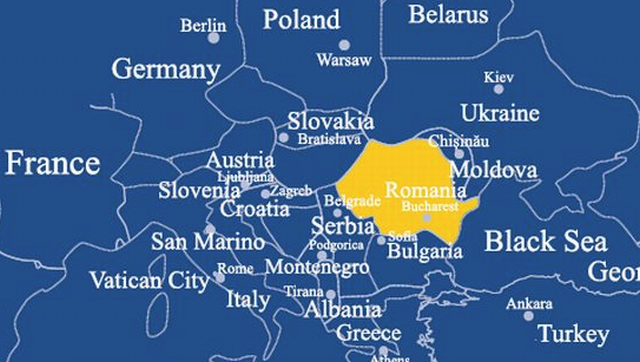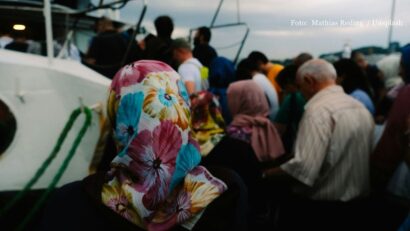The Volunteer Repatriation of Migrants
Migration is an old phenomenon, and it sometimes falls short of the expectations of the people involved.

Ana-Maria Cononovici, 25.06.2014, 13:17
Migration is an old phenomenon, and it sometimes falls short of the expectations of the people involved. In some cases, migrants end up in situations they had never imagined and have to adjust to the new conditions. Sometimes falling victim to the new circumstances, they regret their initial decision and decide to return home. Under an assisted volunteer repatriation program, the International Organization for Migration provides support to these migrants.
Migrants have had the opportunity to leave Romania and return to their countries of origin since 1993, but it was only in 2002 that the Romanian Government signed a memorandum with the International Organization for Migration to improve the framework for assisted volunteer repatriation and reintegration. Maria Voica, a program coordinator with the International Organization for Migration (IOM) has further details:
Maria Voica: “The assisted volunteer repatriation and reintegration program gives people a chance to start fresh. It is a program which offers migrants who stay illegally in Romania or whose stay has become illegal the possibility to return home safely, as well as a small package to start fresh at home, to do something useful, to the benefit of both their families and the community they belong to.”
Migrants can be supported in various ways, from purchasing transport tickets, providing assistance throughout the trip. Once on home soil, they are welcomed at the airport by IOM representatives in the countries of origin, who accompany them to their homes and provide them counselling to help them reintegrate in their countries of origin. Counselling for social reintegration is a very important stage, which ensures the sustainability of the project. Maria Voica gives us some details on the project, two years after it was launched:
Marina Voica: “280 people have received information and counselling on volunteer repatriation. Our goal was to provide assistance to 400 people, but the number of migrants who stayed illegally or whose stay became illegal has decreased significantly, and that is why it was impossible to reach this target. Thirty-two people have attended vocational or entrepreneurial education courses provided by our colleagues from the Call Service Association, which is the official partner of the IOM in this project. 109 people have returned to their countries of origin voluntarily, 20 have received aid packages, foodstuffs and clothes. 43 people have received support and assistance to get reintegrated into society and have received the equivalent of 1,200 US dollars in goods and services.”
This amount of 1,200 dollars actually consists in goods and services that a migrant receives after returning home. With this money, migrants can start a business, or an income-generating activity on medium and long term, or they can take up vocational courses or change their profession, in order to start a new life at home. A low number of volunteer repatriations, that is 20 people per year, were registered in 2006. The number grew in time, up to 300 people per year. According to the Directorate for Migration, choosing volunteer repatriation offers greater protection to foreigners who are staying illegally in a country. Migration officer Mariana Dumitrache has details:
Mariana Dumitrache: “It is much better for us to know that a foreign citizen wants to leave the country and to get repatriated voluntarily. When they hide, they take a risk, because anything can happen on Romania’s territory when they are in an illegal situation. They are alone.”
Adele used the services of a Manila-based agency, which takes care of paperwork when a citizen wants to leave the country. She chose Romania and signed a contract to work as a baby-sitter. In turn, Ruby came to Romania from the Philippines, on a baby-sitting contract. Filipino baby-sitters have a very good reputation in Romania, being known as industrious women who do the housework and take care of the children for little money. The recruitment firms in their country of origin however promise them much better conditions, more money and less work. Ruby has returned to the Philippines.
Both Adele and Ruby only received 100 Euros of the promised 400 Euros per month. That is why they chose to leave the employing families, were left without working contracts and became illegal migrants. Both of them applied for the assisted volunteer repatriation program and are now back in the Philippines, where Adele bought a motorcycle with the money received from the International Organization for Migration, to carry goods for a school in town, thus being able to cover her daughter’s daily expenses.






























